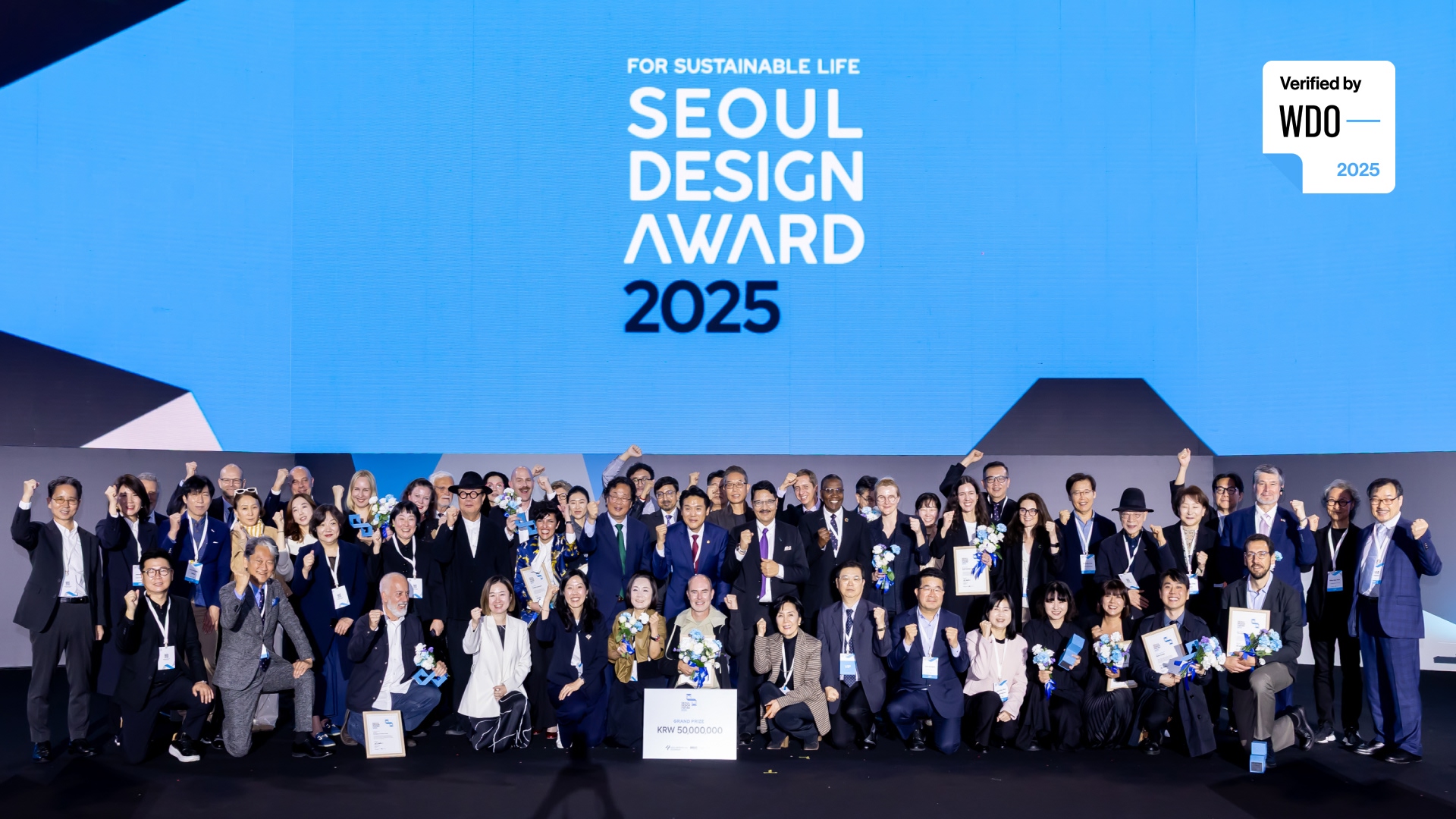Seoul (Republic of Korea), 24 October 2025 – The Seoul Design Award 2025 concluded its awards ceremony at Dongdaemun Design Plaza (DDP), where Nonfiction Design from the United States won the Grand Prize for its Jaza Energy Hubs project in Nigeria. This year’s edition, which was endorsed by World Design Organization (WDO)®, marked the largest in the award’s history, with 941 entries from 74 countries competing for the prestigious recognition of design excellence and sustainability.
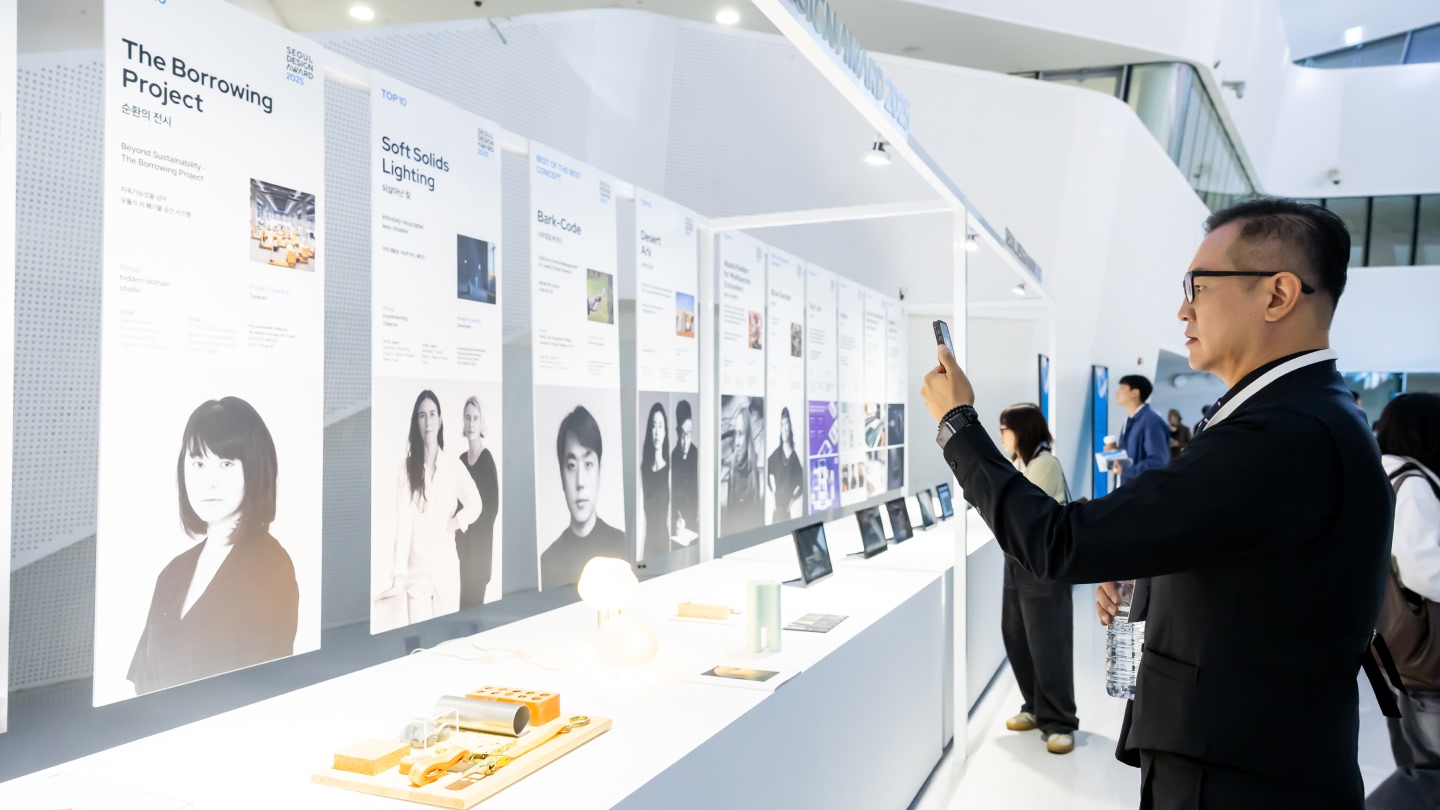
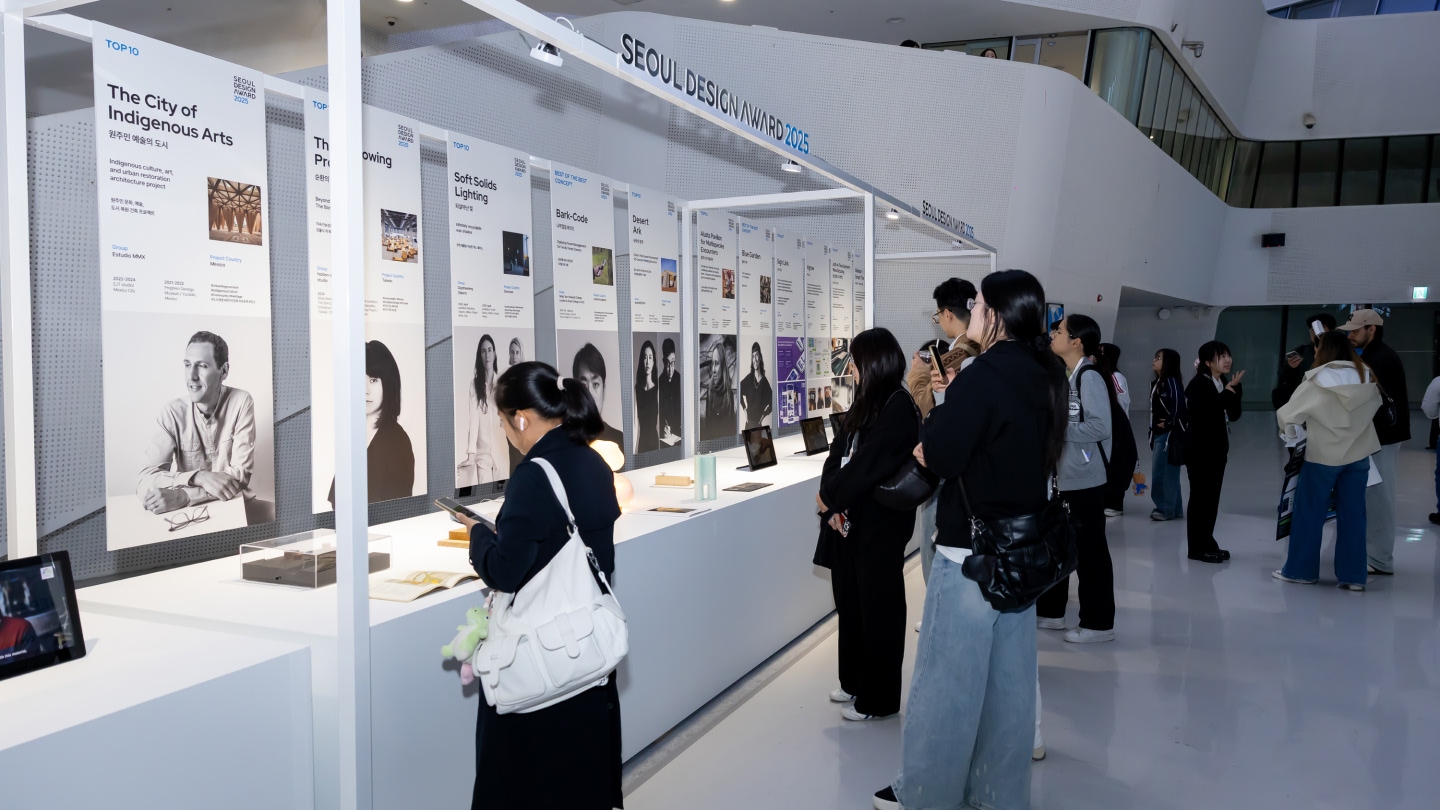
Seoul Design Award 2025 Project Exhibition. Photo credit: Seoul Design Foundation
Design That Powers Equality
The winning project, Jaza Energy Hubs, addresses rural energy inequality in Nigeria through modular solar charging stations and a rechargeable battery rental system. The design provides affordable and reliable power to local residents while creating new economic opportunities using locally sourced materials and labor.
Mardis Bagley, Co-founder of Nonfiction Design, shared that “we are honoured that Seoul, a city at the forefront of global design, has recognized a project centered on humanity, nature, and coexistence.”
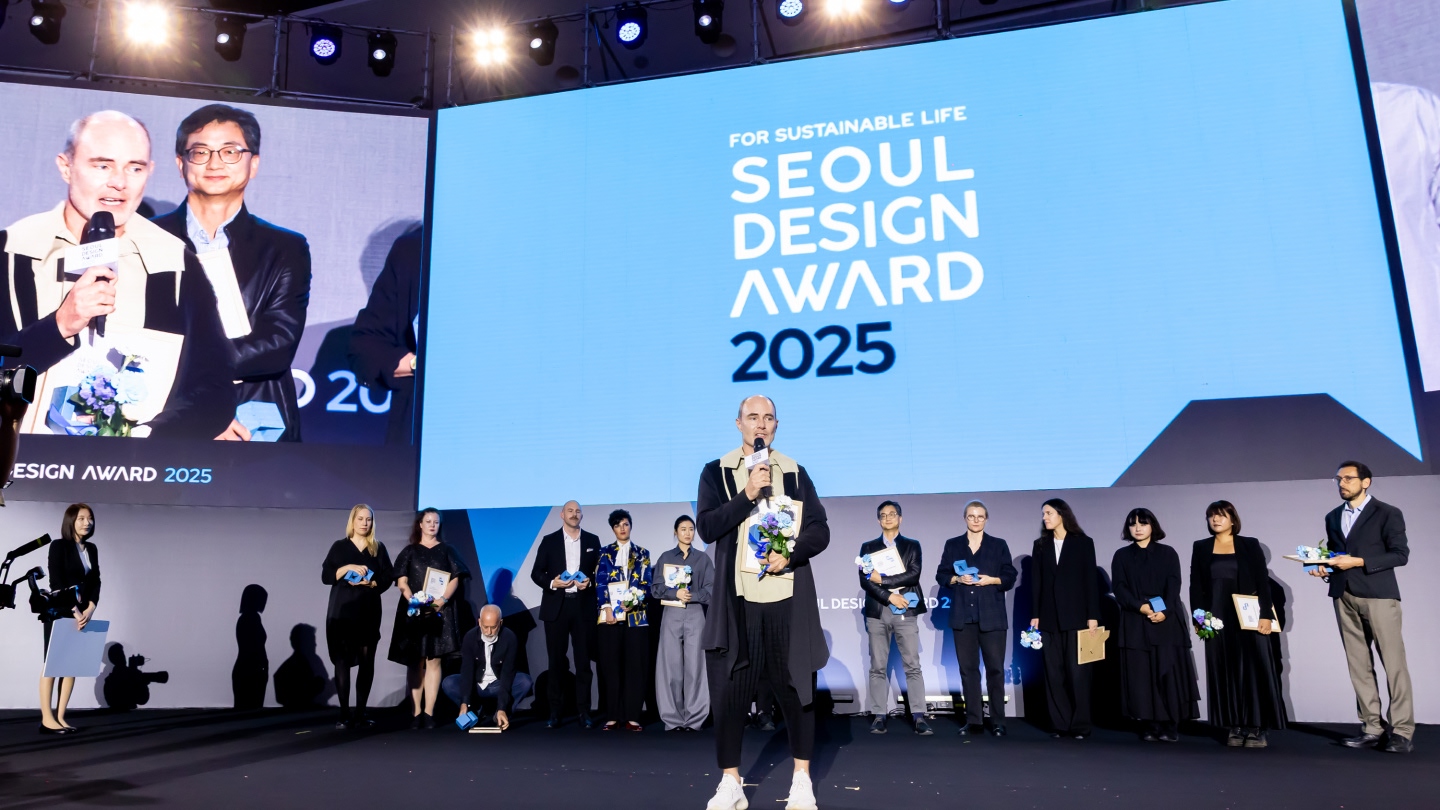
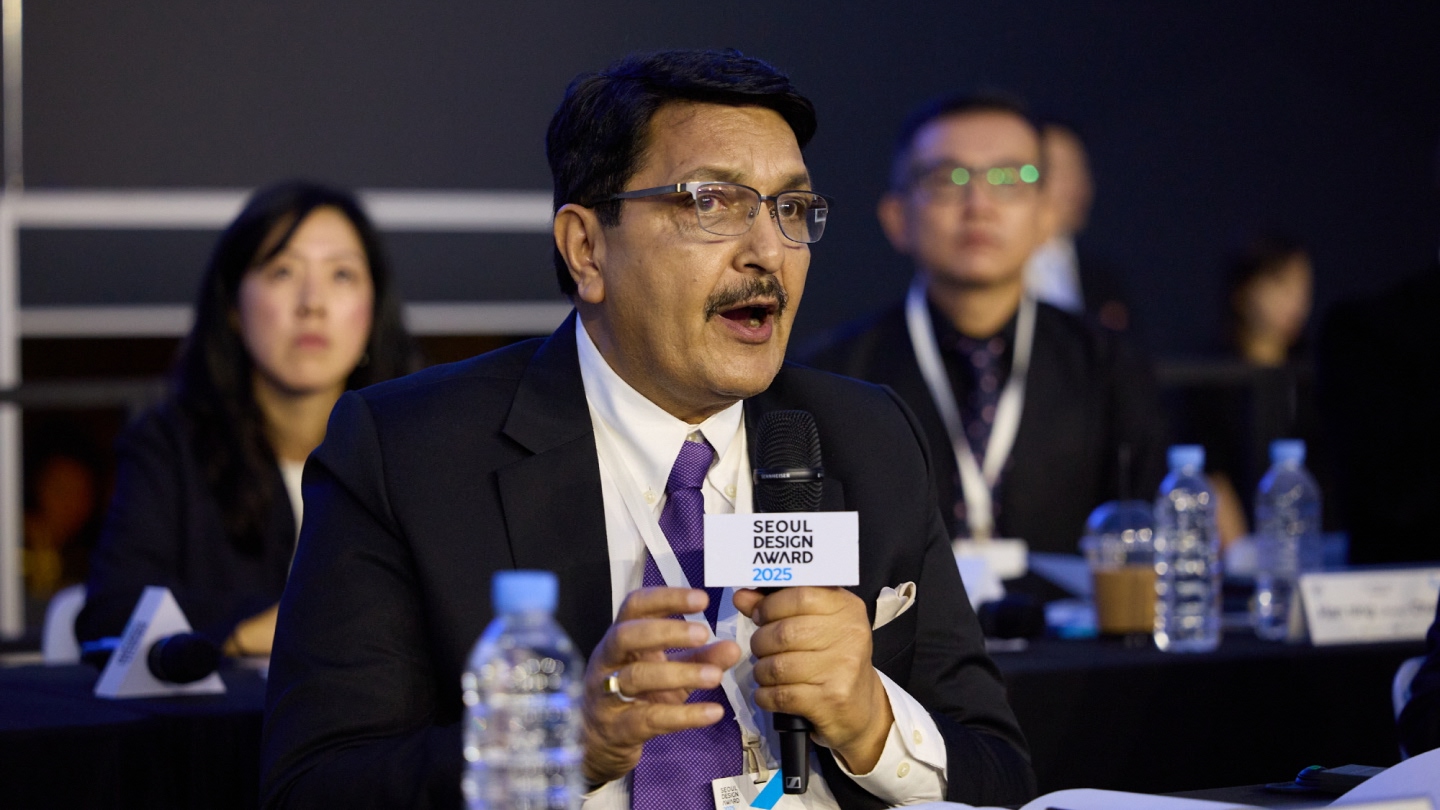
Recognizing Innovation for a Sustainable Future
In addition to the Grand Prize, nine projects received Best of Best Awards, representing outstanding examples of sustainable and socially impactful design.
Alusta Pavilion for Multispecies Encounters (Finland) – fostering coexistence between humans and nature
Anako – Emergency Folding Cradle (Italy) – creating innovative survival tool for vulnerable people
Crafted Liberation (Australia) – transforming unwanted Iranian headscarves into meaningful community products
Desert Ark (China) – the nation’s first 3D concrete-printed structure applied in desert restoration
Golden Feathers (India) – transforming slaughterhouse feather waste into sustainable fibers
LADIS (South Korea) – improving community health and hope with UV water sterilizer
Soft Solids Lighting (Denmark, Lithuania) – combining upcycled components with natural wax blends
The Borrowing Project (Taiwan, Chinese Taipei) – promoting resource circulation through material reuse after exhibitions
The City of Indigenous Arts (Mexico) – revitalizing neglected urban spaces into cultural centers
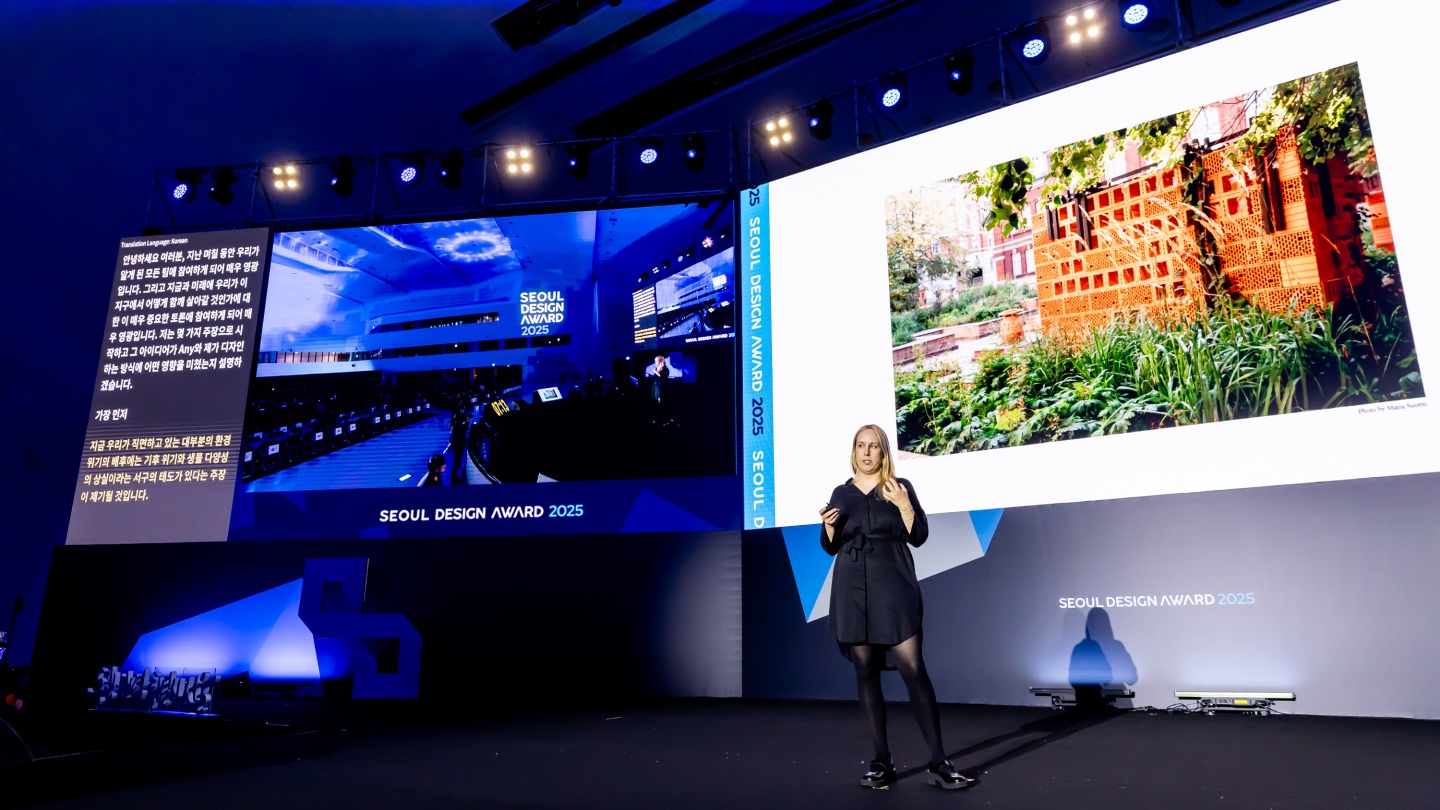
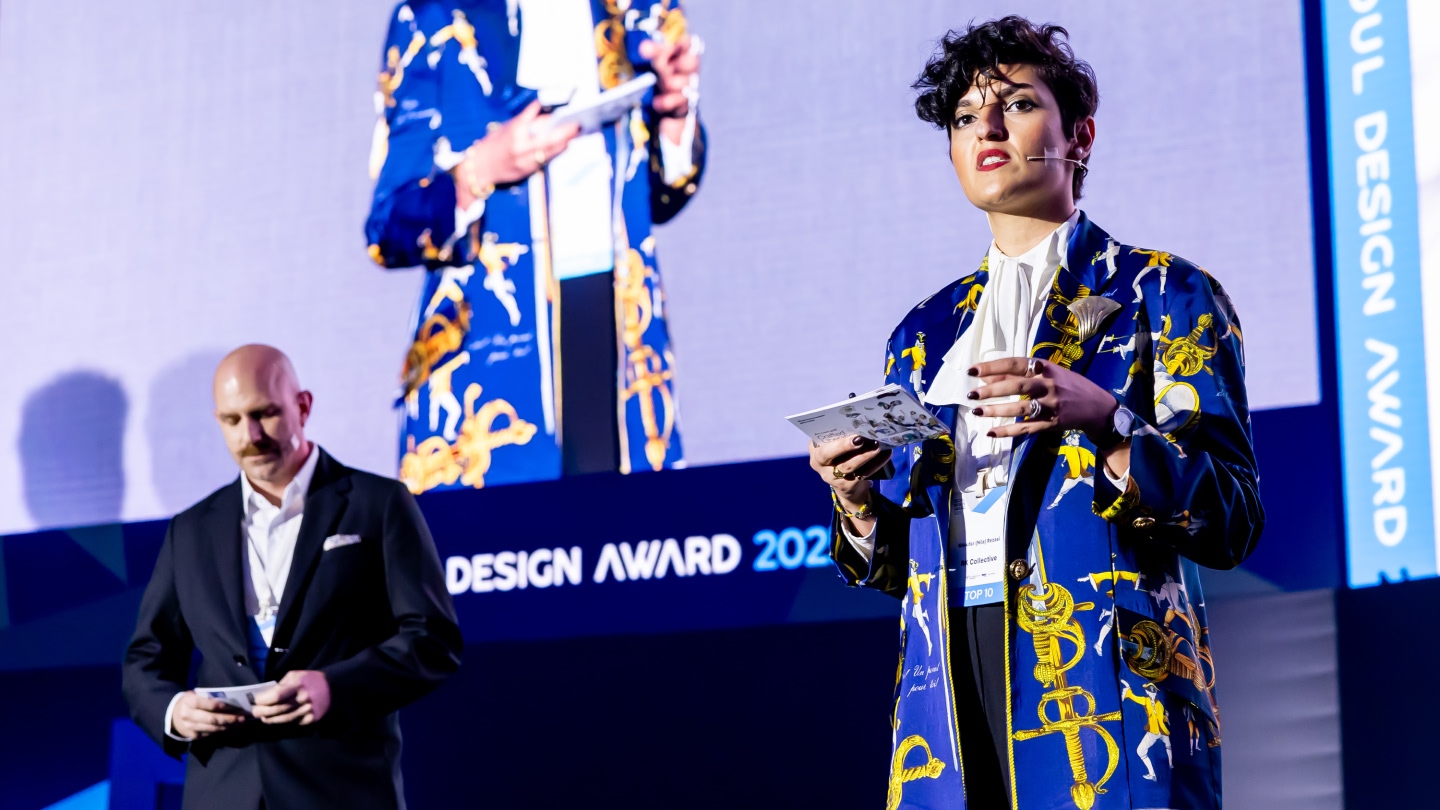
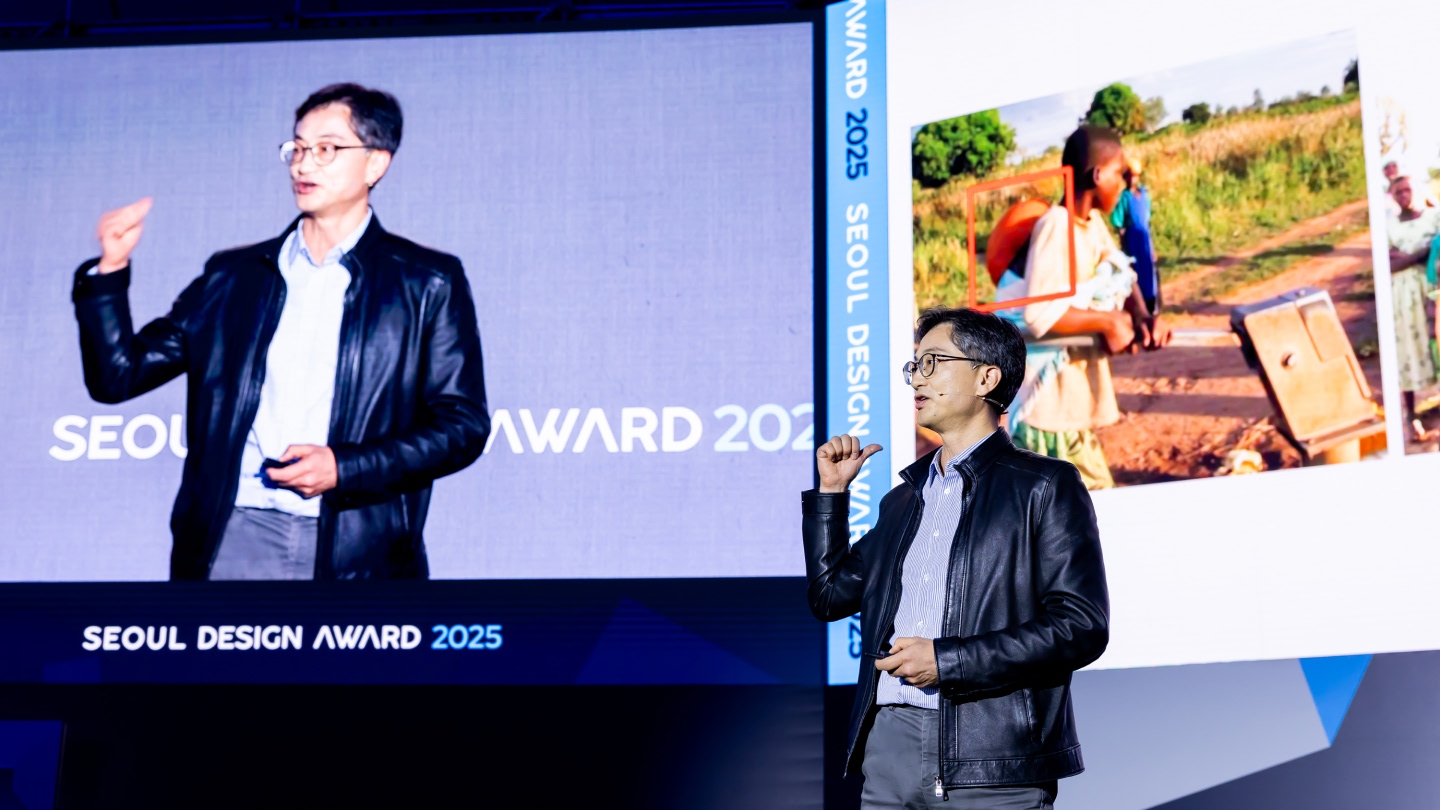
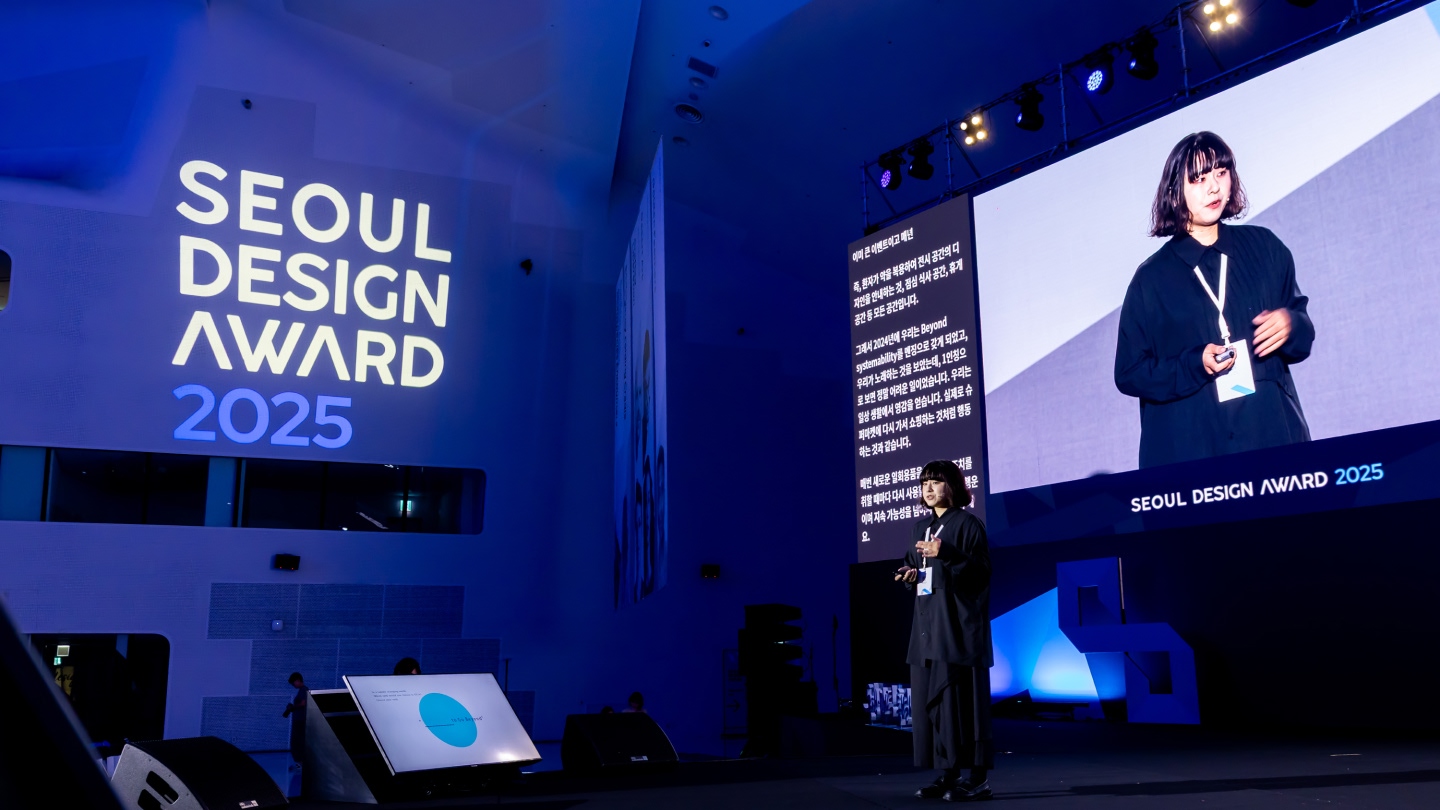
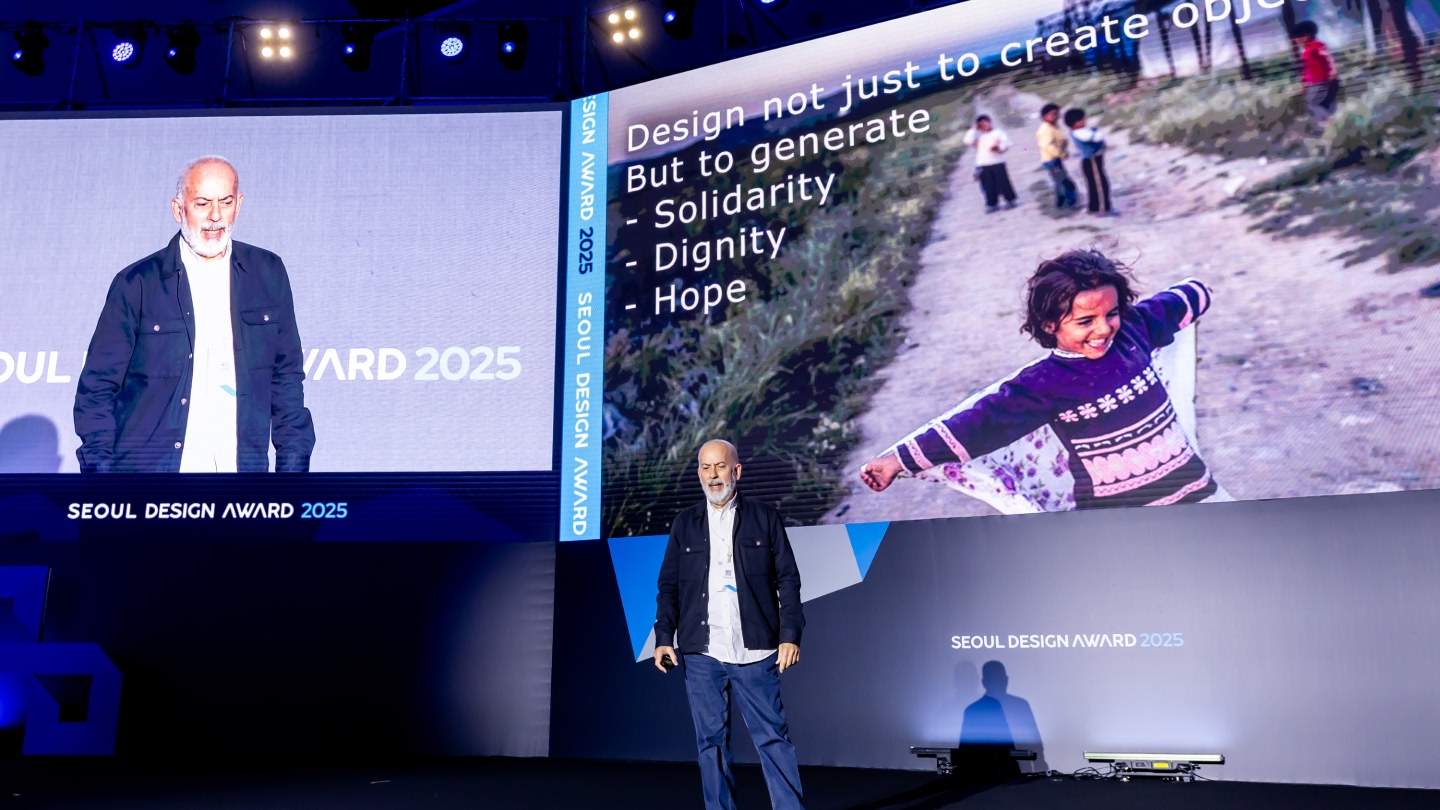
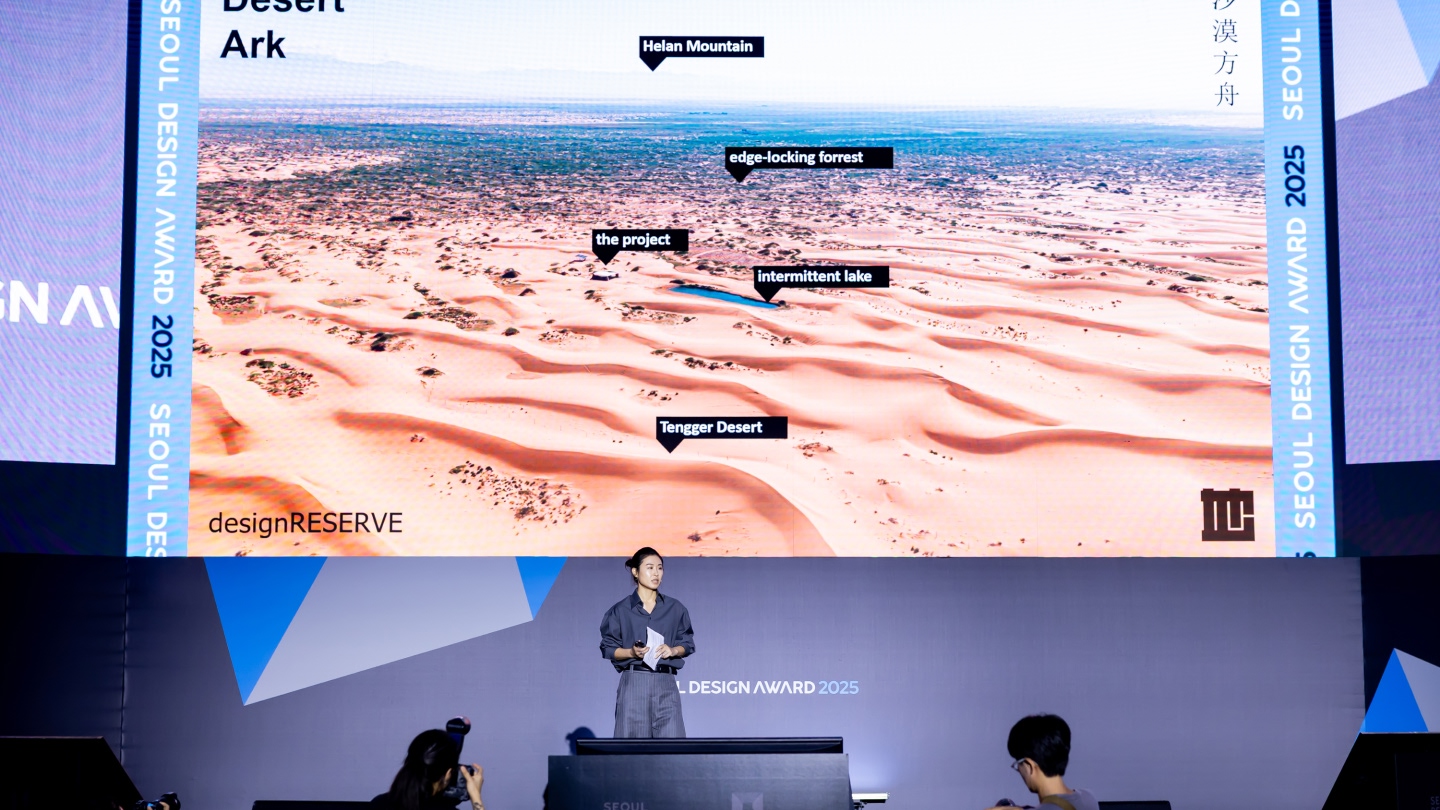
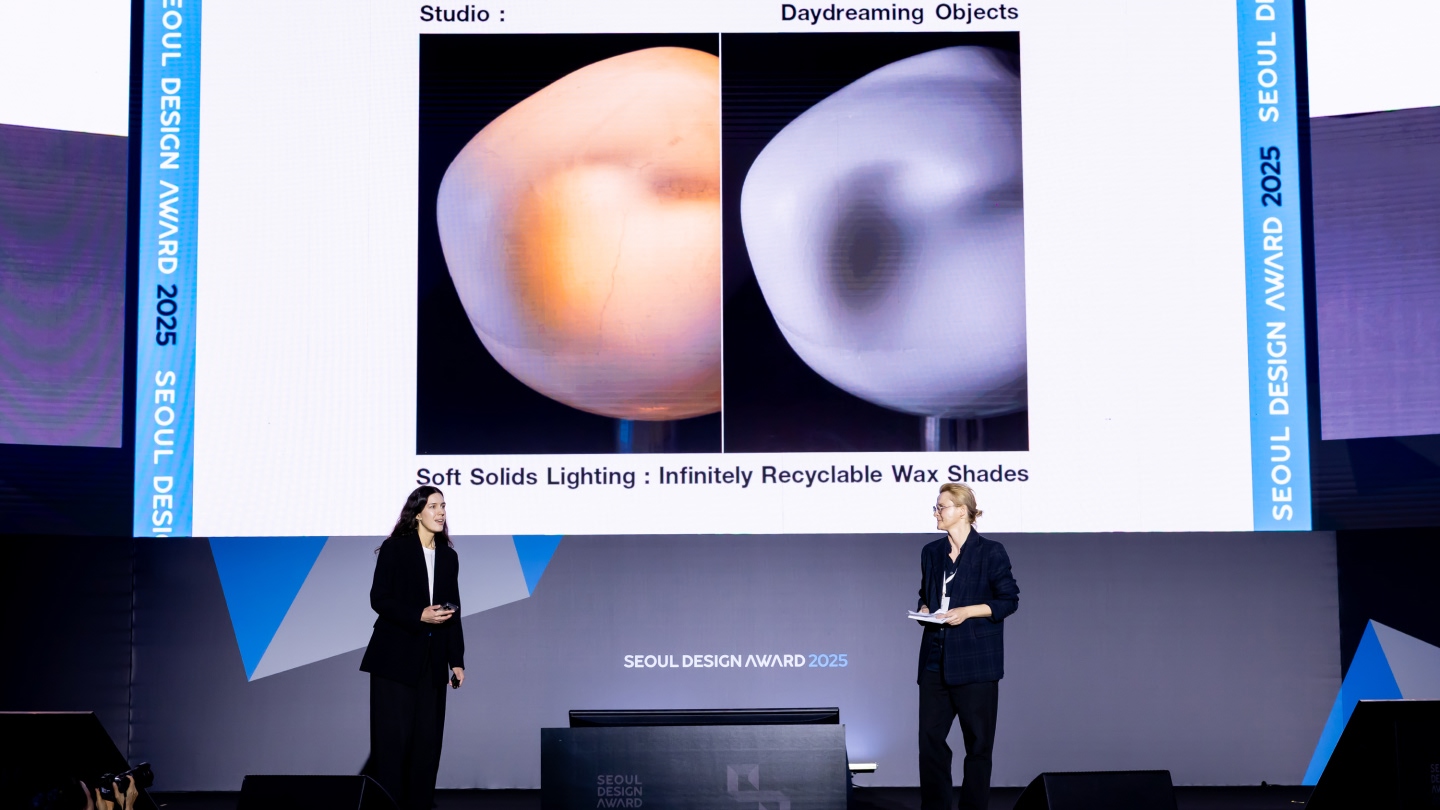
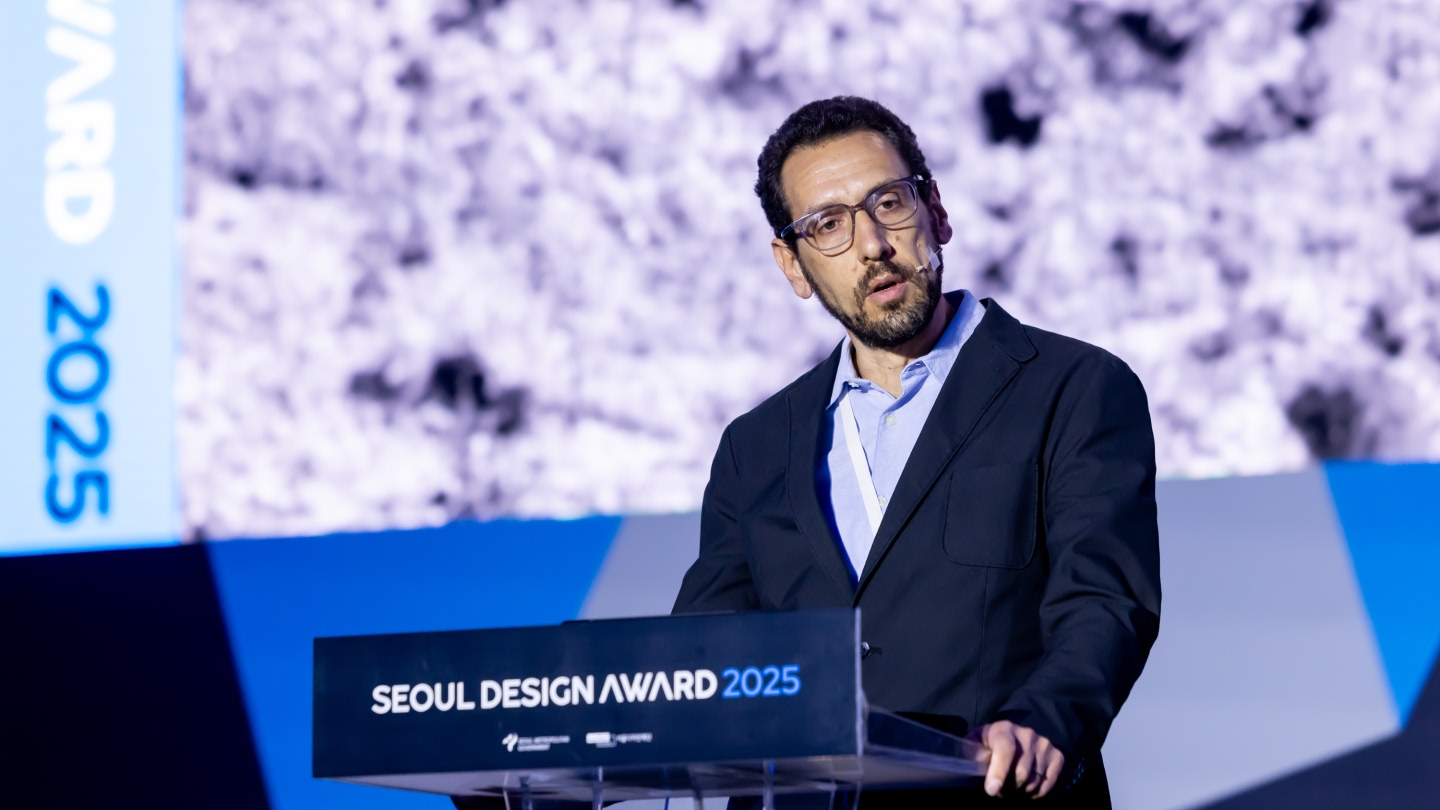
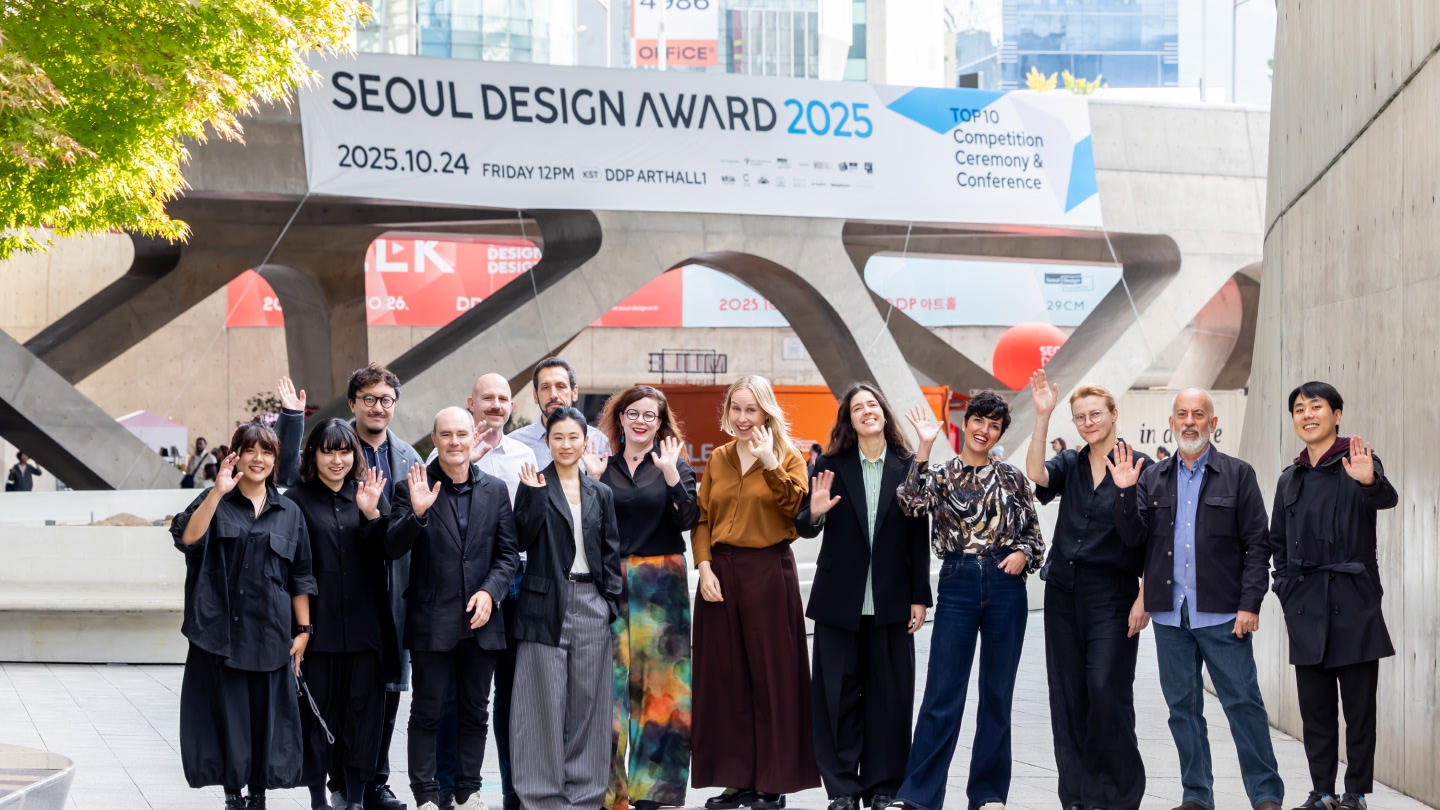
The Concept Awards went to Bark-Code (South Korea and UK), which 3D scans trees to help small-scale forest owners access carbon credits, and Blue Garden (UK), a regenerative marine ecosystem project.
Global Dialogue on Design for Sustainability
The award ceremony was held alongside the Sustainable Design Conference, featuring leading figures from design institutions across the world. The conference explored the Seoul Design Award’s four key themes: Health and Peace, Equal Opportunity, Energy and Environment and Cities and Communities.
Speakers included Ezio Manzini (DESIS Network), Alexandra Klatt (Berlin Design Week), Jimmy Chang (UID Create), Mugendi M’Rithaa (Machakos University), Martin Zelger (DAAily Platforms AG), and Kazuo Tanaka (GK Design Group).
Kang Heui Cha, CEO of the Seoul Design Foundation, said that “the Seoul Design Award is a platform that demonstrates the power of design to change the world. It is evolving into a global dialogue for designing a sustainable future.”
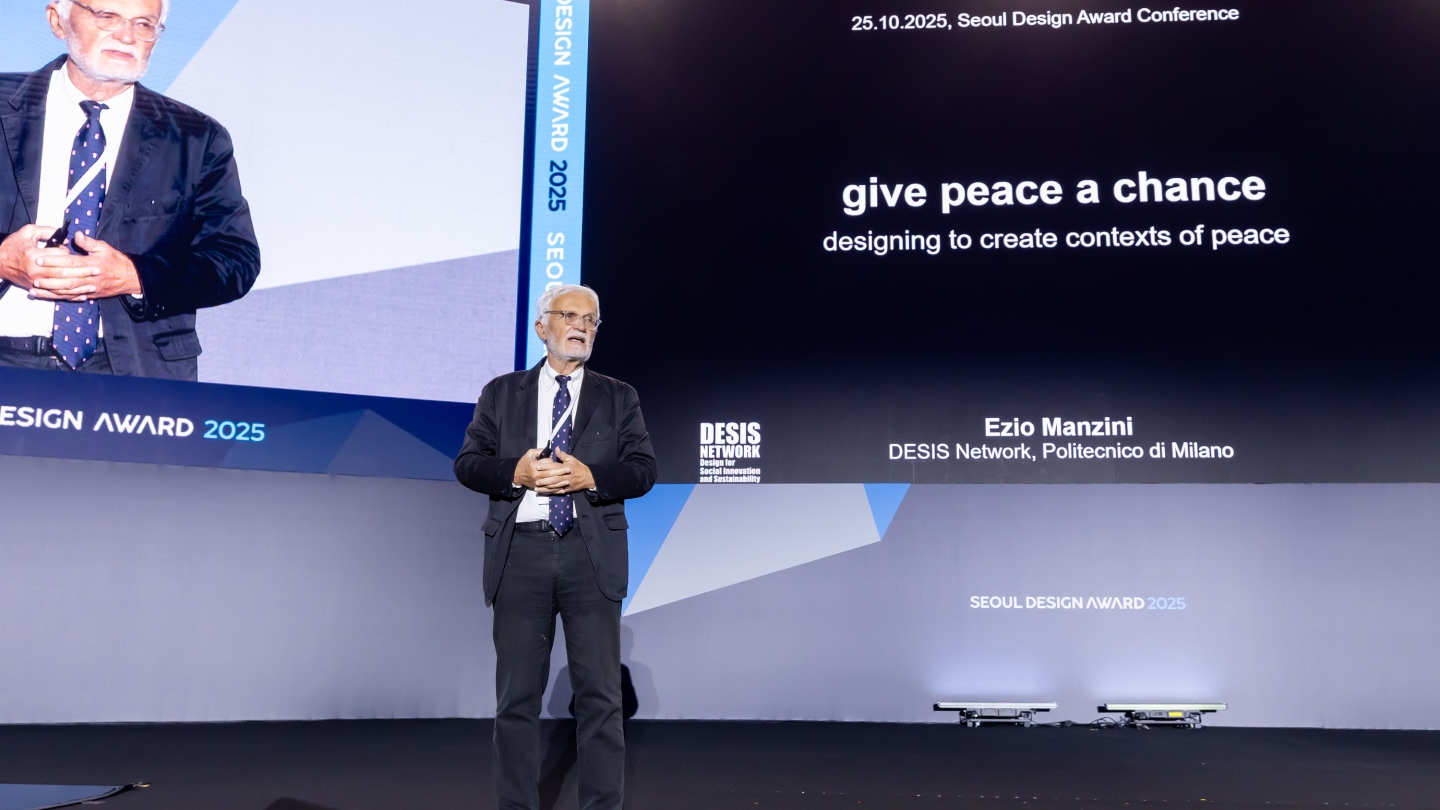
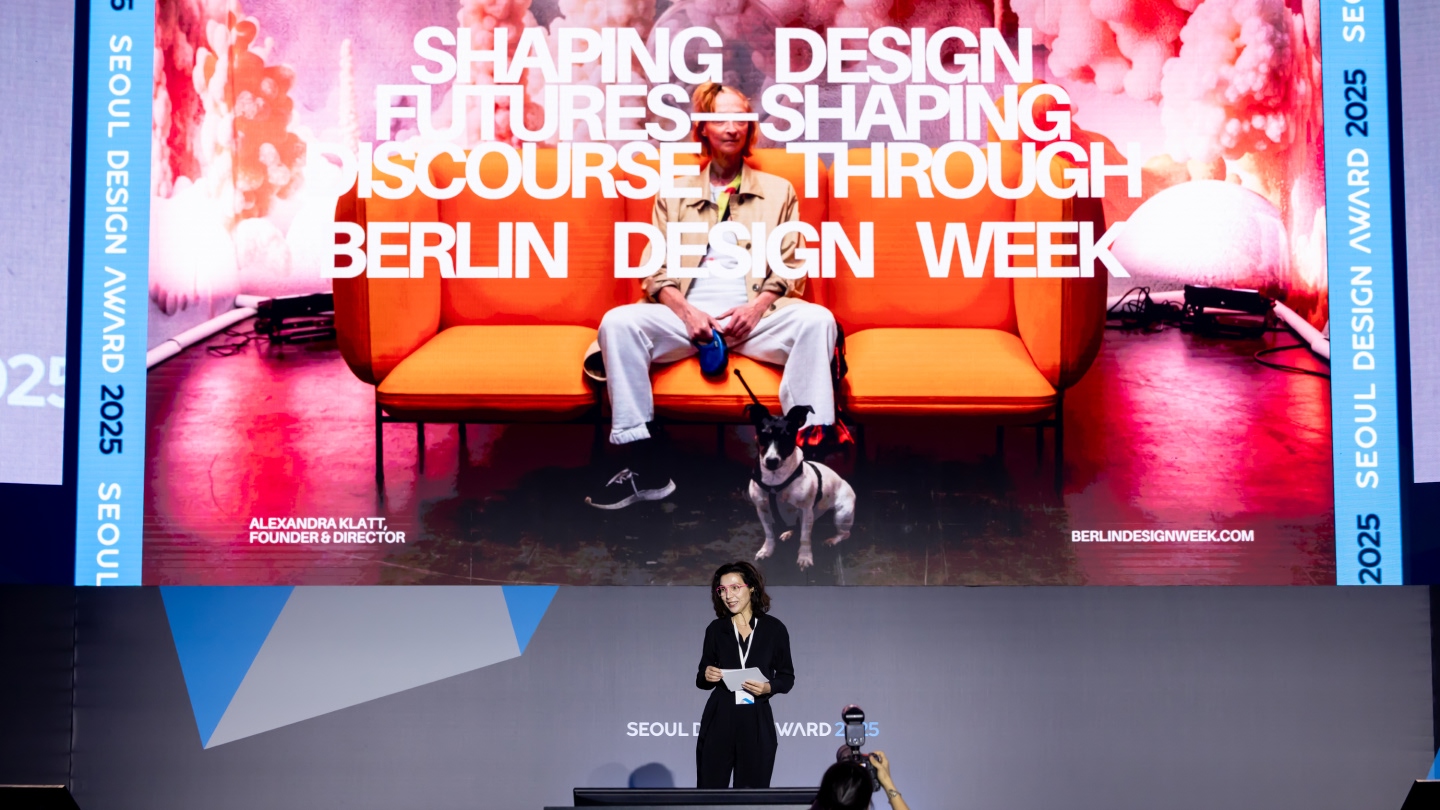
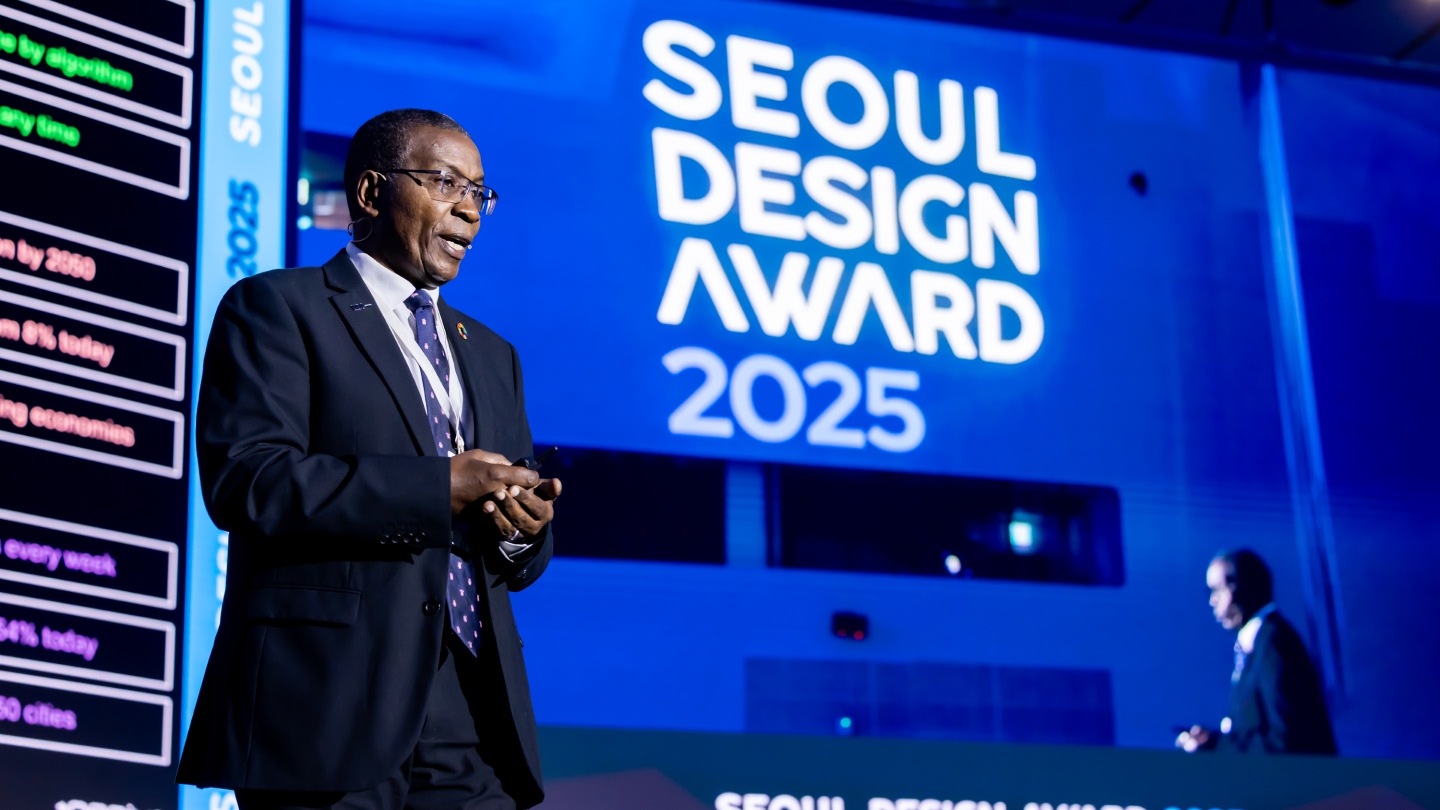

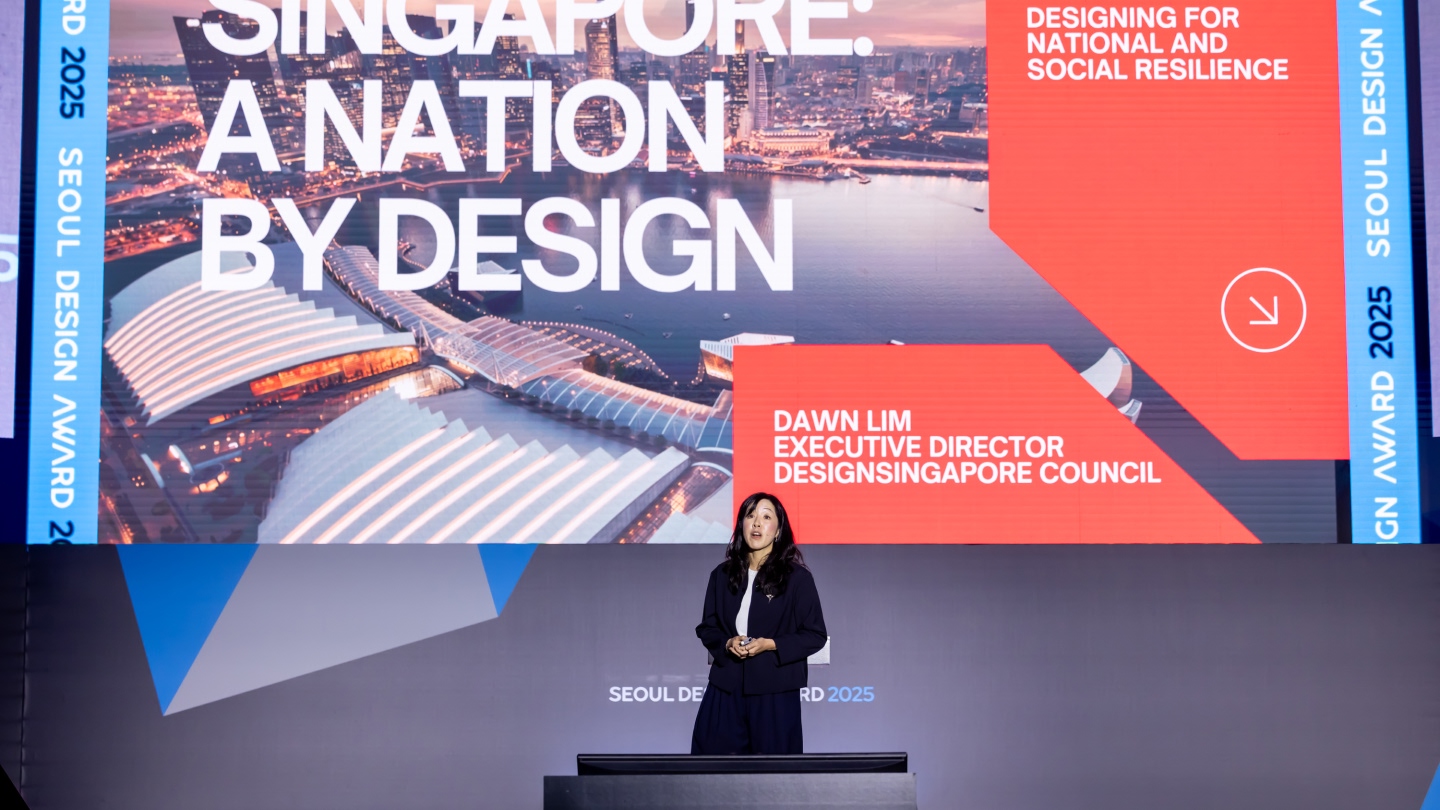
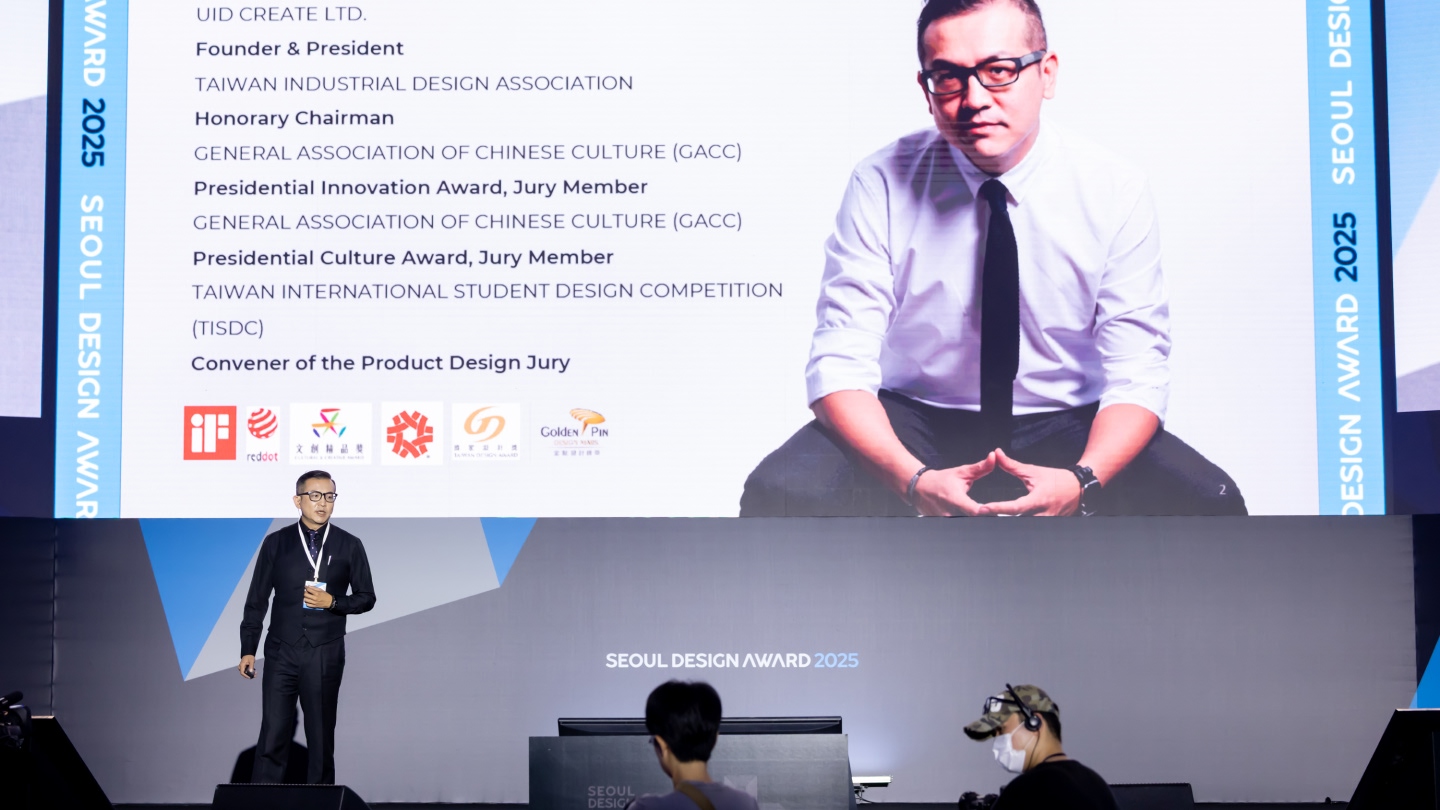
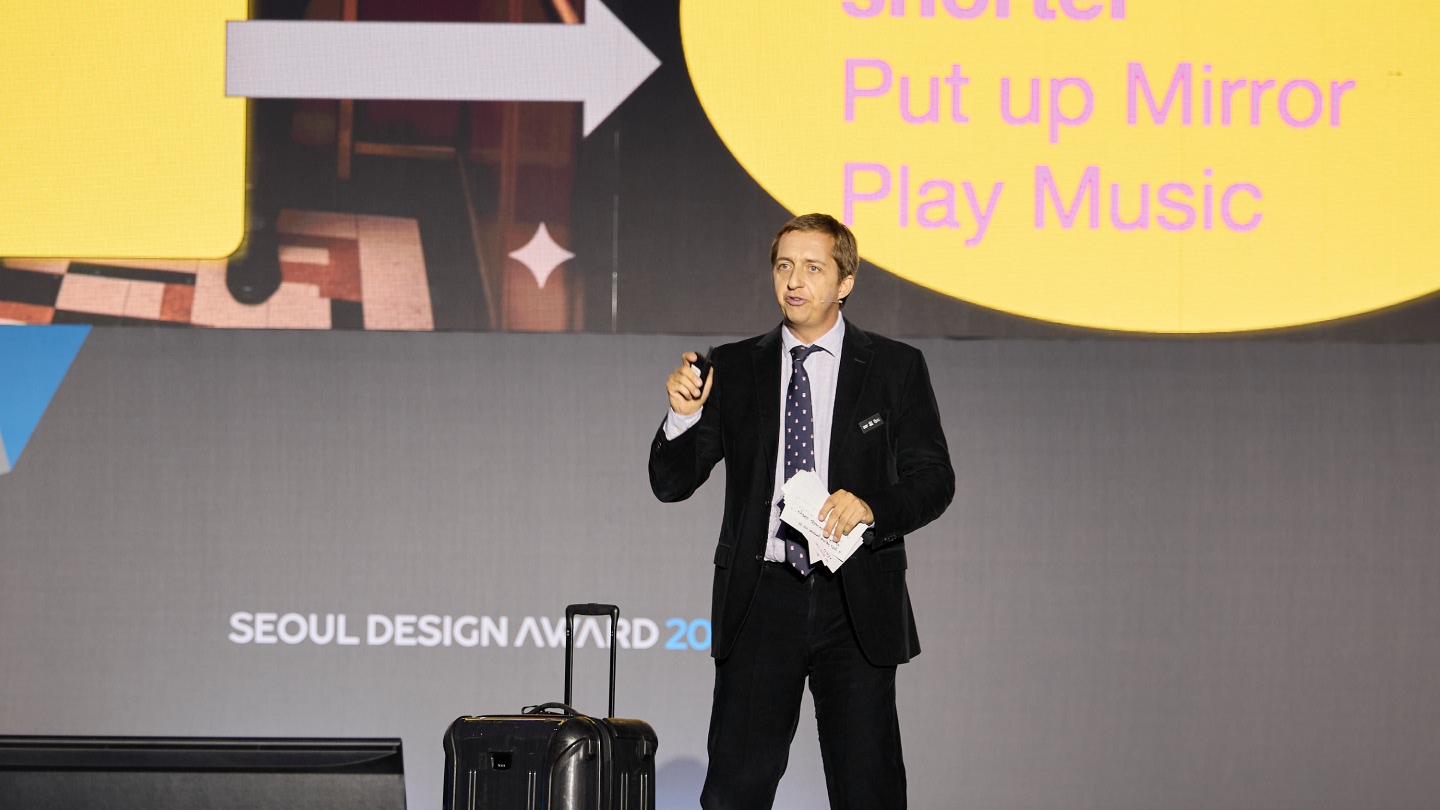
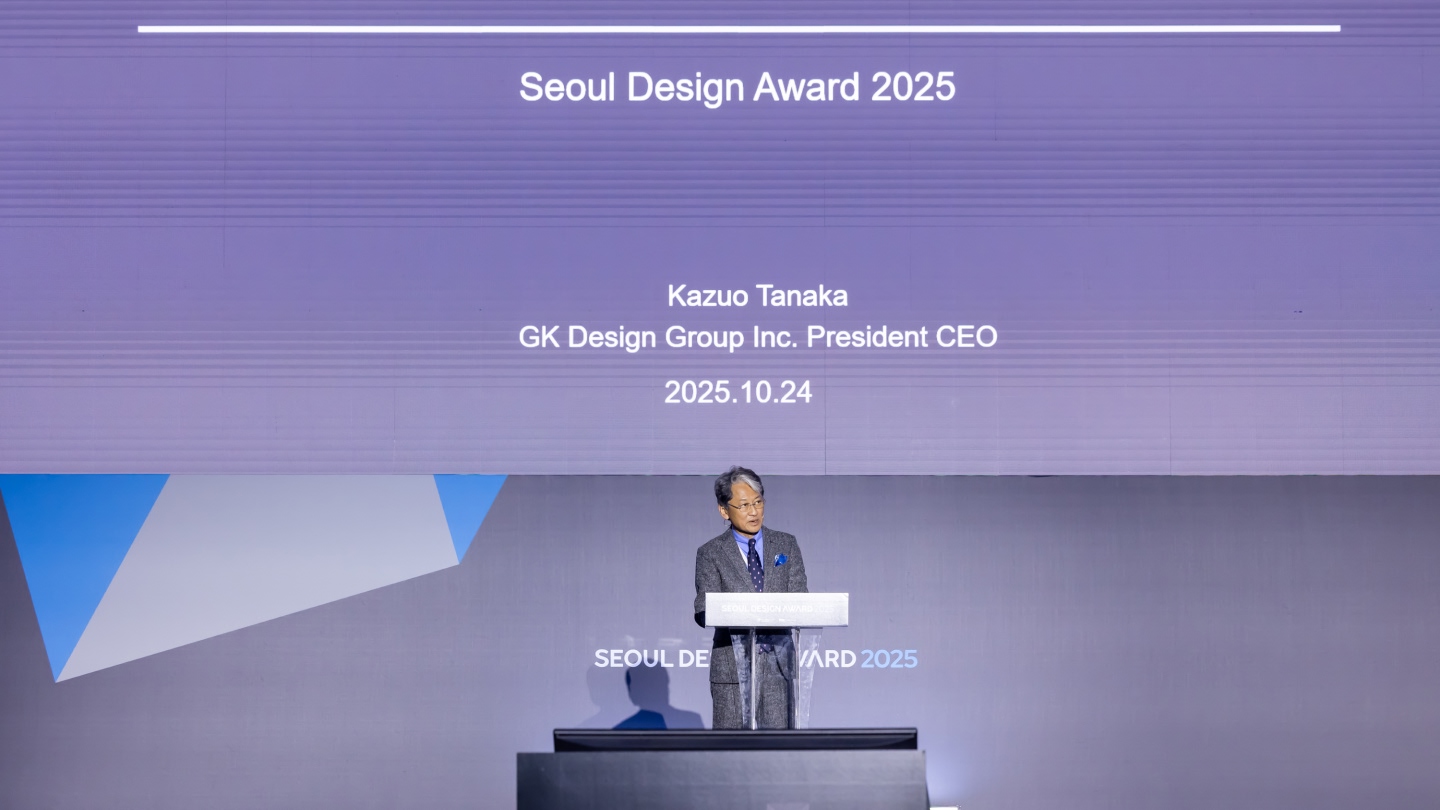
Seoul Design Award 2025 conference speakers. Photo credit: Seoul Design Foundation
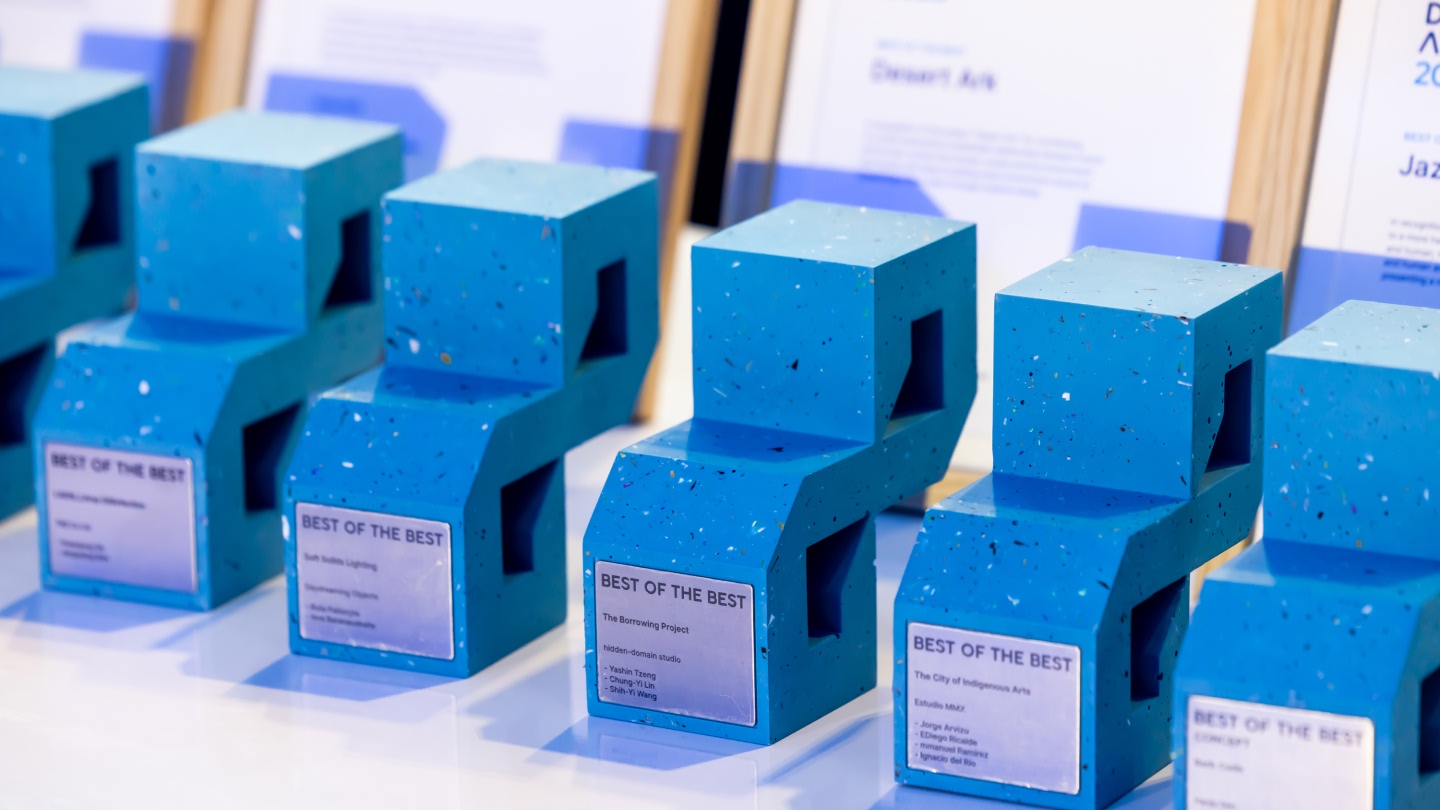
About Seoul Design Award
Launched in 2019 by Seoul Design Foundation, the Seoul Design Award recognizes design projects that contribute to sustainable lifestyles and global well-being. Centered on the UN Sustainable Development Goals (SDGs), the award celebrates creativity that drives environmental, social, and economic sustainability.

